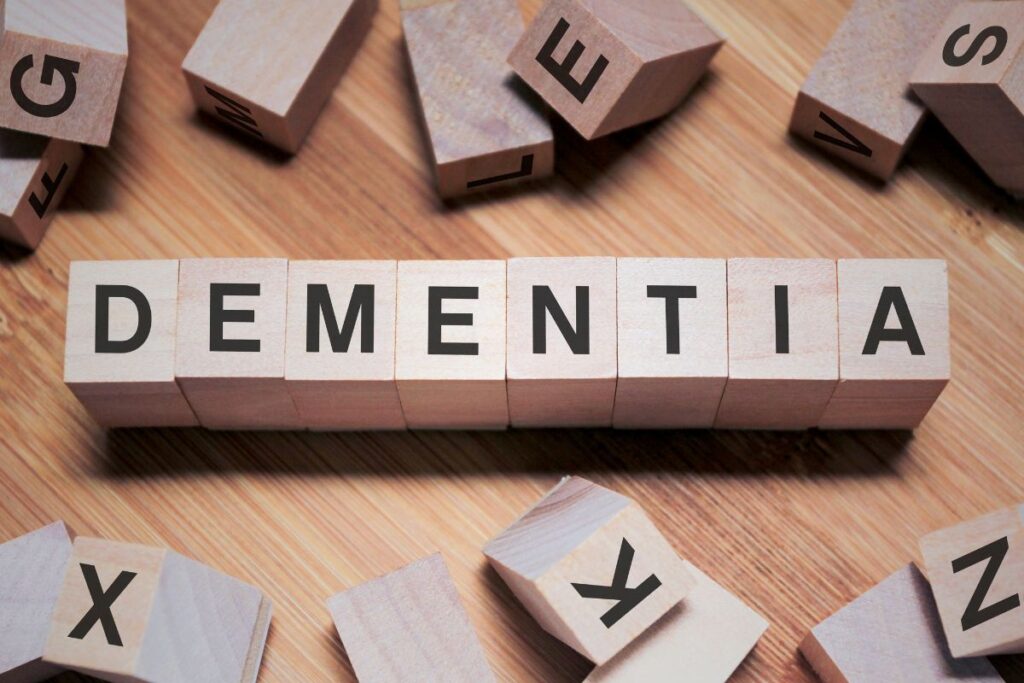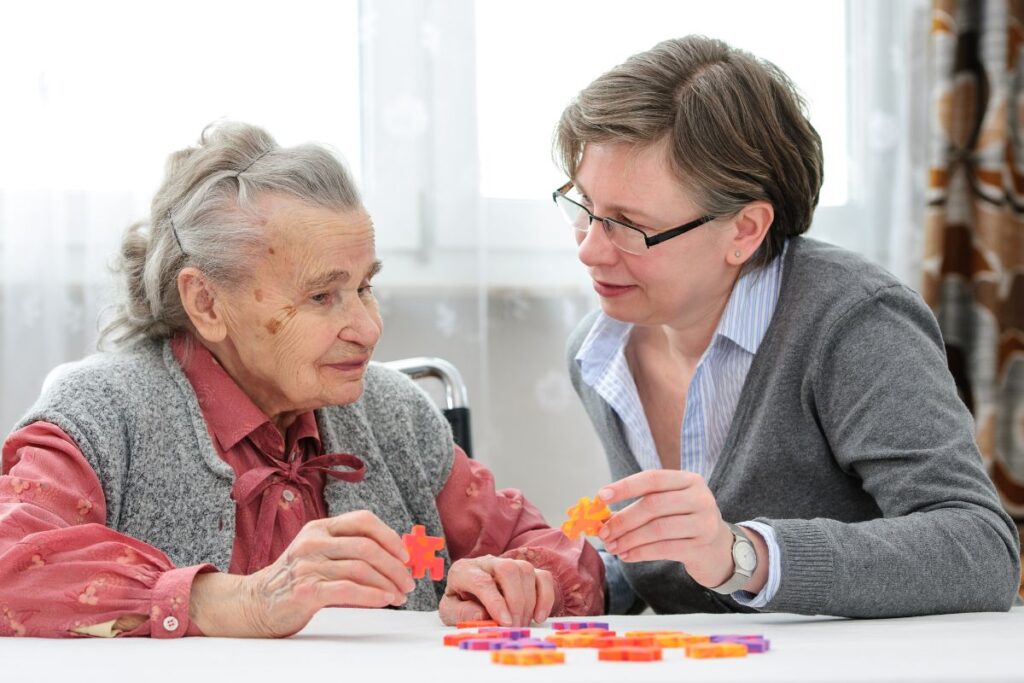By Laura Wayman from The Dementia Whisperer
A diagnosis of any cause of dementia symptoms, while life-changing, marks the start of a new chapter and transition. It does not, however, indicate the beginning of an end. Individuals living with dementia symptoms continue to engage in daily life, interactions, relationships, tasks, goals and more. In life’s intricate mosaic, dementia symptoms do not diminish one’s humanity, either.
This fresh chapter is not devoid of transformation. The nuanced interplay of physical, mental and emotional shifts reshapes how individuals navigate life, especially as the disease progresses over time. To navigate this unique chapter with resilience and embrace the evolving narrative is to be “dementia aware.” A passage of notes or musical melody can induce a range of physical and emotional reactions. Being dementia aware is like acknowledging that one can’t change the melody, but you can learn to harmonize with the tune.

Addressing the multifaceted challenges of caring for someone with dementia involves overcoming the communication barriers that arise – to find a semblance of harmony when no one thought it was possible. Being dementia aware requires caregivers to adopt a nuanced mindset, filtering their interactions through a lens attuned to the everyday experiences of the person with memory impairment.
Here are five harmonious approaches to dementia awareness that enable caregivers to navigate challenges and foster positive connections with their loved ones and the people in their care.
1. The power of empathy
Establishing trust with those in your care involves stepping into their perspective and consistently expressing understanding. When you imagine and validate their feelings—whether frustration, fear or misunderstanding—you can magnify their emotional experience. This is not always ideal though. The next time around, soften the experience by connecting with them and acknowledging their internal experiences instead. Share in how they feel on both the surface and heart-string levels to make better connections.
2. Avoid information overload
Excessive details overstimulate and confuse individuals with memory impairment. Simple tasks many people don’t think twice about, like body movement and balance, are more challenging. That’s why it’s important prioritize and limit the information shared to preserve cognitive bandwidth. On some days, a simple cadence is all you need.

3. Lead with action
Prioritize positive action statements for effective communication. Questions can create a barrier whereas these statements act as answers, encouraging immediate engagement. This straightforward approach skips the process of answering questions, replacing it with clear and positive language. For example, instead of asking for help, say, “Let’s make lunch together,” proceeding with the action, followed by some hype.
4. Go with the flow
And avoid asking too many questions. Even seemingly simple inquiries can trigger challenging responses from individuals with cognitive impairment. They may find it difficult to process and responds appropriately, leading to increased frustration, anger and anxiety.

5. Help process information
Individuals experiencing dementia symptoms may face challenges in processing information that others handle routinely. By participating in the thinking process, you can fill these cognitive gaps, providing support that eases their frustration and fear often associated with challenges in grasping and processing information. Some hand holding can make the world of difference in so many ways.
By being Dementia Aware, we can foster cognitive, physical, spiritual and psychological well-being in a secure, supportive and loving environment.
To learn more about Laura, and what she does, click here.
If you’re an adult child in need of a trusted referral, advice or senior-centric resources of any kind, contact us at Senior Resource Connectors today. Our services come at NO COST to you.

